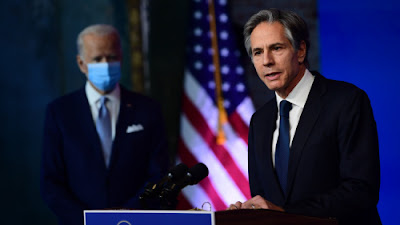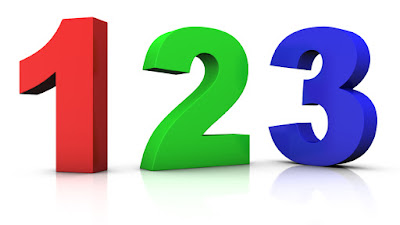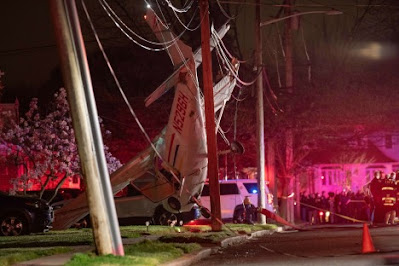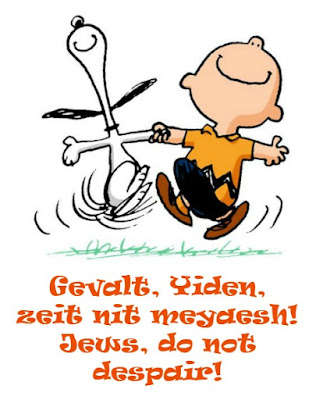Together Again: Thanksgiving week turned out surprisingly happy. Surprisingly.
Yes, there was the ongoing, catastrophic Covid-19 pandemic and its crescendo of cases, hospitalizations, and deaths. There was the wave of unemployment and "food insecurity" that plagued (you should not forgive the expression) the richest nation in the history of the world.
And there were the remembrances of deeply significant moments in our nation's history - but especially, of Abraham Lincoln's Gettysburg Address, delivered November 19, 1863. Although Lincoln was not speaking of our current constitutional predicament, he did wonder
whether our nation, or any nation conceived in Liberty
and dedicated to the proposition that all men
are created equal, can long endure.
 |
| Secretary of State nominee Antony Blinken speaks after being introduced by President-elect Joe Biden at the Queen Theatre in Wilmington, Del., on Tuesday. Mark Makela/Getty Images |
Biden's Secretary Of State Pick Has Both Diplomatic And Musical Chops
President-elect Joe Biden's pick for secretary of state, Antony Blinken, has worked with Biden for years and has a wealth of diplomatic experience under his belt.
He also has a self-described "wonk rock" band called ABlinken, with two original songs streaming on Spotify.
In between tweets about foreign policy, Blinken's Twitter feed is sprinkled with musical references, including this 2018 plug for his band.
Wonk rock is a fitting genre for someone with decades of foreign policy experience. Blinken began his career during the Clinton administration, and most recently served as deputy secretary of state and deputy national security adviser under then-President Barack Obama before moving into the private sector.
Jim Steinberg, who also served as a deputy secretary of state under Obama and has worked with Blinken for decades, described him as having "the experience and the knowledge" needed for the job. Steinberg told NPR's Mary Louise Kelly:
"He has the temperament. He's a great colleague and works well with others. And most important of all, he has the confidence of the president of the United States."
Way back in September 2016 - before the madness - Sesame Street's Grover was privileged to speak with the U.S. State Department's then Deputy Secretary Tony Blinken at the United Nations in New York City to talk about refugees. Or maybe it was the other way around.
And as for Tony Blinken's band Ablinken ... here is their 2018 song Patience -
And here is Ablinken's 2018 song Lip Service -
And here, for the true cognoscenti among us, is a lesser-known (because it is, for some odd reason, lesser-publicized) video of our Secretary of State nominee performing the traditional psalm Hoochie Coochie Man with the band C.O.W. (Coalition of the Willing), the DOD's party band, in 2017.
Fun Fact: C.O.W. included (et al) renowned guitarist Jeff "Skunk" Baxter, who played with Steely Dan and The Doobie Brothers. Baxter later became a defense consultant. Which, Abq Jew supposes, is how he wound up in C.O.W.
So let's tell stories about God. Tony Blinken's got a good one, which he related last week at his nomination announcement. Again, from NPR's Rachel Treisman:
[Blinken] spoke of his own family members' journeys and contributions to America, including relatives who fled communism and pogroms in Eastern Europe and his father's U.S. Air Force service during World War II.
Blinken told the story of his late stepfather, Samuel Pisar, a Holocaust survivor who escaped from a death march in the Bavarian woods and was rescued by a Black G.I.
He said that when Pisar realized the tank in front of him was American, he got down on his knees and said the only three English words he knew:
"God bless America"
"That's who we are," Blinken said onstage.
"That's what America represents to the world, however imperfectly."






































